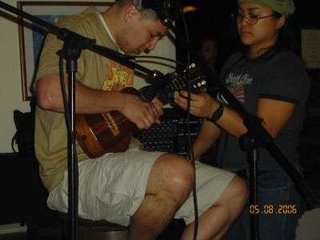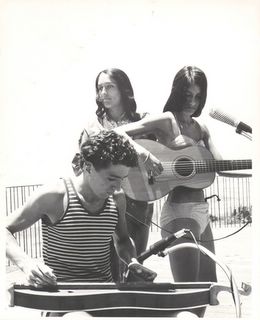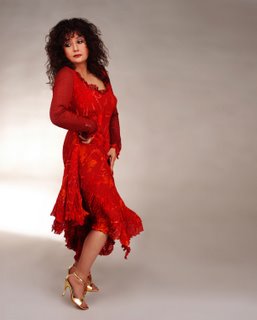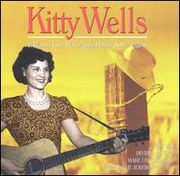
Direct link to mp3.
Subscribe to Dreamtime
[Intro]
Episode 22 – All Along the Watchtower
This is another one of the shows that decided to write itself, and I'm just along for the ride. I'm a regular listener of Brian Ibbott's Coverville podcast, which I commend to your attention if you haven't heard it. As the name implies, Coverville focuses on cover music, sometimes centered around a particular artist or band, sometimes just a hodge-podge of different covers that have caught Brian's ear.
Back in October, in one of those hodge-podge shows, Coverville 'casted a stark, spooky cover of Dylan's All Along the Watchtower played on ukulele – yes, ukulele - by a musician named Kimo Watanabe. I finally got around to listening to that podcast in November and when I heard it, the music literally made me pull over to the side of the road so I could focus on listening.
It's what radio is all about, and doesn't happen often enough anymore. Thanks to the wonders of these here internets, I was able to track down Kimo – who has a Myspace page – sent off an email, and he responded with not only a new version of All Along the Watchtower, but several other pieces of music from the album he's currently working on, Backyard Music. Here's Kimo Watanabe with All Along the Watchtower.
[All Along the Watchtower]
Dylan recorded All Along the Watchtower in 1967, releasing it on John Wesley Harding, his first album after the famous motorcycle accident. At least 30-odd – and probably many, many more than that - bands and musicians have covered the song ; everyone from Elton John to the Kronos Quartet's semi-classical take on the song, to, of course, probably the most famous cover of them all, Jimi Hendrix's version. In fact, the cover may be better-known than Dylan's original. Many people on first hearing it – including my then 13-year-old self – assumed Hendrix had written it.
As the story goes, Hendrix heard the song at a party and the same night went into the studio to record it, backed by Traffic's Dave Mason. Released as a single, it was Hendrix's only U.S. Top 40 hit, making it to #20 in 1968.
I've always thought of All Along the Watchtower as an October and November song; an end of days song, characters trying to stay warn on a bleak wind-whipped tower, snow falling around them, the watchfire embering, and in the distance two figures on horseback approaching, their purpose unknown. Friends? Heralds of an approaching disaster?
These days All Along the Watchtower is a regular war horse in Dylan's encore stable; at my rough count he played it over 60 times during his 2006 tours, thundering it out at the encore close of his shows, the reverse side of the cynical optimism of his other regular encore song, Like A Rolling Stone. If Like a Rolling Stone has become something of the anthem for `60s survivors, All Along the Watchtower may be their elegy. No one is being asked how they feel at world's end.
This is Fred Bals with the Dreamtime podcast, occasional commentary on Bob Dylan's Theme Time Radio Hour, occasional commentary on other things Dylan-related. If you're listening to Dreamtime through iTunes or an RSS Reader, please come by and visit our home page Just put Dreamtime podcast in Google, Yahoo, or whatever your favorite search engine, and we'll be number one on your hit parade.
And if you can't get enough of that good old Theme Time music, take a look at the left-hand column for the Dreamtime Store, where you'll find Amazon links to the music and artists featured on "Theme Time." I have three sections up – Flowers, Mothers, and Weather – and will be creating more as soon as I can.
Closing us out is another cover from Kimo Watanabe, his take on that jazz classic, "The Way You Look Tonight."
[The Way You Look Tonight]
Podcaster or listener, you can find even more of Kimo's music for your pleasure at the Podsafe Music Network.
Visit the Dreamtime Store
Monday, November 27, 2006
Episode 22 - All Along the Watchtower
Posted by
Fred@Dreamtime
at
4:23 PM
1 comments
![]()
Labels: All Along the Watchtower, Jimi Hendrix, Kimo Watanabe, Ukulele
Thursday, November 16, 2006
Episode 21 – Def Poets Society

Direct link to mp3.
Subscribe to Dreamtime
[Intro]
Be quiet now and still. Be unafraid:
That hiss and garden tinkle is the rain,
That face you saw breathe on the windowpane
Was just a startled cat with eyes of jade –
Cats worry in the rain, you know, and are afraid.
The nervous laugh that creeps into our room
Is throated in a voice beyond the door.
We hear it once and then no more,
A distant echo tumbling from its loom.
Our time is measured in another room.
We know days pass away because we’re told.
We lie alone and sense the reeling earth.
(You whisper in my ear it has some worth)
And I lean near to keep you from the cold.
There are so many things that must be told.
I speak of lost regimes and distant times,
And afternoons of rain spun into rhyme.
(The patter of the rainfall marks our time.)
As does the waning moon. Or muted sun.
As do the nodding gods who ride the sea.
For even now, alone and still with me,
You sense the bonds that cannot be undone:
Our pulse is in the rain and moon and sun,
We take our breaths together and are one.
Celebration for a Gray Day - Richard Fariña
Put away your themes and schemes, because it's time for the Dreamtime podcast, occasional commentary on Bob Dylan's Theme Time Radio Hour. In the background is Tommy Flanagan's, "Peace," and today we're taking about poetry…
I have to admit that when I first heard Dylan refer to Henry Ward Beecher as a "def poet," in the "Coffee" episode, my initial reaction was, "Huh, I never knew that Beecher couldn't hear." However, when he called Robert Louis Stevenson "slightly def," I realized that there was a joke going on that I wasn't getting. Happily, Google is the balm that cures almost all woes – even those of the slightly thick, and, after trying out variant spellings of "deaf," Google informed my white bread self that Dylan hadn't fixated on poets with hearing problems, but instead was using the hip-hop slang term "def," as in "great," or "definitive."
Who knew?
According to Wikipedia, not necessarily a final authority on any subject, "Def" originated in New York City in the 1980s, made it into the big time and the Oxford English Dictionary in 1993, and subsequently was declared dead by the NYC rap community, and even had a mock eulogy delivered by the Reverend Al Sharpton. Dylan apparently got the idea for the def poetry tag from Russell Simmons, who, in 2002 produced an HBO series called Def Poetry Jam, now in its 5th season, with poets performing their work on stage in front of a live audience. Celebrity guests make frequent appearances on Def Poetry Jam, guests that have included Smoky Robinson, Lou Reed, Jamie Foxx, and the woman about who there is nuthin' not to like, according to Bob Dylan, Alicia Keyes herself.
I bet he taped that show.
Def poets on Theme Time have included: Lawrence Ferlinghetti; one of the last surviving Beat poets who Dylan seems to like a lot, Henry Ward Beecher; the Bard of Avalon, William Shakespeare who has had more Theme Time readings than any other poet; Charles Bukowski; Gregory Corso; Emily Dickinson (Def Poetess); Robert Louis Stevenson (Slightly Def Poet); T.S. Eliot; John Donne; Bertolt Brecht; Gwendolyn Brooks; Samuel Coleridge; Edgar Allan Poe; Lord Buckley; Alexander Pope; the Def Bostonian, Anne Sexton; James Joyce, Rainer Maria Rilke; Christopher Marlowe; Percy Bysse Shelley, and Frosty Poet, Robert Frost.
On "Theme Time," Dylan returns to a time of free-form radio when a DJ – especially those on the graveyard shifts – was as likely to read a poem to his or her audience as to spin a platter. Free verse, the ode, the ballad, the haiku, the limerick, palindrome, villanelle, quatrain, sonnet, sestina, and my personal favorite, the clerihew. By any name, if it uses some form of meter, metaphor and rhyme, as far as I'm concerned, it's poetry. To reverse Mata Hari's quote in the "Dance" episode, "The poem is a dance in which each word is a movement."
Richard Fariña was many things, musician, author, poet; contemporary of Thomas Pynchon and Dylan, a charming rogue from all reports, his charm dependent on your tolerance for rogues. Dylan gives Fariña only a passing mention in Chronicles, dismissing him in a line as just someone else who was in on the Village music scene. That's a little surprising, if you've read David Hajdu's Positively 4th Street, but, on the other hand that gossipy book may be one of the reasons Fariña isn't mentioned more in Chronicles.
By the end of Positively Fourth Street, the only person who doesn't appear to be a calculating hustler is Joan Baez's younger sister, Fariña's wife, Mimi. Or maybe some bad feelings still remain. It's been claimed more than once that Dylan's song "Positively 4th Street" was directed at Fariña, who was nakedly jealous of Dylan's success.
"It got to Dick," Mimi said in an interview. "That this younger person (Dylan was six years younger) was able to do it a bigger way." Things went bad between Dylan and the Fariñas both because of that jealousy and Dylan's treatment of Joan. Perhaps in counter to Dylan's "Positively 4th Street," Fariña replied with "Morgan the Pirate," a song ending whatever friendship was left, with the refrain, "one or two hard feelings left behind."
Between Positively 4th Street and Michael Gray's ugly portrayal in his so-called Bob Dylan Encyclopedia, Fariña's reputation has taken something of a beating in the past few years. But the bottom line is that he was a talented artist who, at age 29, died much too early to fulfill that talent. Two full albums, one other pieced together after his death, one novel, one collection of short stories. That's all that we have. Dick Fariña would have been 69 this April. It would have been wonderful to have his version of Chronicles. And maybe by now the hard feelings would have been fully left behind.
This is Fred Bals with the Dreamtime podcast, occasional commentary on Bob Dylan's Theme Time Radio Hour. If you haven't been to our home page, come by and visit. Just put Dreamtime podcast in Google, Yahoo, or whatever your favorite search engine, and we'll be number one on your hit parade.
After the poem Celebration for a Gray Day there was the song, which was also the title track of the Fariñas first album. A song without words, here's "Celebration for a Gray Day."
Posted by
Fred@Dreamtime
at
10:44 AM
0
comments
![]()
Labels: Alicia Keyes, Def Poetry, Joan Baez, Mimi Fariña, Richard Fariña
Wednesday, November 08, 2006
Episode 20 – Heart of Mine
[Intro]
Direct link to mp3.
Subscribe to Dreamtime
I'm doing another "someone who hasn't been featured on Theme Time yet," but like my prediction about Rick Nelson, I bet she will.
Maria Muldaur. Born Maria D'Amato, and raised in Greenwich Village, Maria was at ground zero for the Great Folk Scare of the '60s. Her first influences were country music singers, Hank Williams. Kitty Wells. Hank Snow. Ernest Tubb. When she was five years old, Maria liked to sing Kitty Wells' "It Wasn't God Who Made Honky Tonk Angels," complete with yodels.
After she finished high school, Muldaur moved to a loft in the Village and got involved with The Friends of Old Timey Music, a group that traveled the rural South to find legends like Doc Watson and Mississippi John Hurt, and then bring them north to present them in concert to urban audiences. "We used to have after hours jams on Saturday nights [in my loft], Maria said in an interview. Blues legends like the Reverend Gary Davis would come over and drink whisky, tell stories and play and sing. We'd stay up all night, then drive him up to Harlem, and without getting any sleep, he'd deliver a sermon. I found myself sitting at the feet of the Rev. Davis, Mississippi John Hurt, Son House and blues diva Victoria Spivey. It was an incredible time."
 After returning to New York from one of her visits to the South, Maria was invited to join The Even Dozen Jug Band, a group that included John Sebastian, and would eventually end up recording for the Elektra label. "We were paid $65 each for the record and played all of four gigs," Maria says. "Two of them at Carnegie Hall, one in a church and the other on the TV show, 'Hootenanny.' "
After returning to New York from one of her visits to the South, Maria was invited to join The Even Dozen Jug Band, a group that included John Sebastian, and would eventually end up recording for the Elektra label. "We were paid $65 each for the record and played all of four gigs," Maria says. "Two of them at Carnegie Hall, one in a church and the other on the TV show, 'Hootenanny.' "
The Even Dozen Jug Band soon dissolved, not least because most of its members were college-bound, and Muldaur migrated to Massachusetts to check out the Cambridge folk scene. In Cambridge, Maria would end up joining one of the most popular of the then very popular jug bands, The Jim Kweskin Jug Band. Except for the Muldaur connection, Kweskin and his jug band would be all-but-forgotten. The band disbanded in 1968, with several of its members, including Kweskin, joining a cult established by the jug band's ex-harmonica player, Mel Lyman. Lyman's other major claim to fame was for playing a long harmonica solo at the end of the 1965 Newport Folk Festival to the riled crowd streaming out after Dylan's famous electric outburst. But in the late `60s, after ingesting large and regular quantities of LSD, Lyman claimed himself at various times to be: the living embodiment of Truth, the greatest man in the world, Jesus Christ, and an alien entity sent to Earth in human form by extraterrestrials.
The `60s being the `60s, several people agreed with Lyman, including Jim Kweskin, and the band dissolved as Kweskin moved into The Mel Lyman Family. Happily, Maria, and her then-husband Geoff Muldaur, didn't, and they went on to become part of the Woodstock musical community. Geoff would leave Maria – both musically and their marriage – to form the Better Days Band, leaving his last name as his legacy.
"We had a friendly breakup, Maria says, "But I was left weeping in the driveway in Woodstock, a young woman with a five-year old kid. I went to our manager, Albert Grossman, and asked him for a job waitressing in one of his restaurants. I really had no vision of carrying on as a solo artist because for most of my adult life, my career had been tied to Geoffey as the musical mastermind. I was just a cooperative team player."
When Maria told Reprise Records president, Mo Ostin, that the duo he had signed to his label no longer existed,, Ostin's reaction was to offer her the opportunity to make her first solo album.
And of course, that album included the title hit, Midnight at the Oasis.
You can get Maria's full discography from that point at her web site, mariamuldaur.com, so I'm not going to get into that here. What I am going to get into is the knock-out album of Dylan love songs she released this August, Heart of Mine: Love Songs of Bob Dylan. If you haven't heard Heart of Mine, stop this podcast and whatever you're doing right now and go get it… it's one of the best collection of Dylan covers you're going to hear this or any other year. Maria turned 63 this September, but her voice, like Dylan's has aged like the finest wine. Here's Maria Muldaur doing a live version of Heart of Mine, taken from her show on the Woodsongs Old Time Radio Hour. I'll be talking about Wood songs more in the podcast, but first Maria Muldaur…
[Heart of Mine]
Maria Muldaur… there is nuthin' about that woman I don't like.
That live recording came from the Woodsongs Radio Hour, a live audience radio show broadcast over 400 radio stations, and with over 70 full-length shows, including the one with Maria Muldaur available for download. Go get Maria's – Show Number 415 – from Woodsongs.com.
This had been Fred Bals with the Dreamtime podcast – occasional commentary on Bob Dylan's Theme Time Radio Hour. Remember to come by and visit the Dreamtime podcast page. Just put "Dreamtime podcast" into Google and we'll be Number 1 on your hit parade.
Theme Time Radio Hour. Remember to come by and visit the Dreamtime podcast page. Just put "Dreamtime podcast" into Google and we'll be Number 1 on your hit parade.
Closing out tonight's show is Miss Kitty Wells doing the song Maria Muldaur liked to sing at age 5. "It Wasn't God Who Made Honky Tonk Angels" was an "answer song," in response to Hank Thompson's "The Wild Side of Life," Here's the 1952 hit that made Kitty Wells a star.
[It Wasn't God Who Made Honky Tonk Angels]
Posted by
Fred@Dreamtime
at
2:53 PM
0
comments
![]()
Labels: Kitty Wells, Maria Muldaur, Woodsongs Old Time Radio Hour

